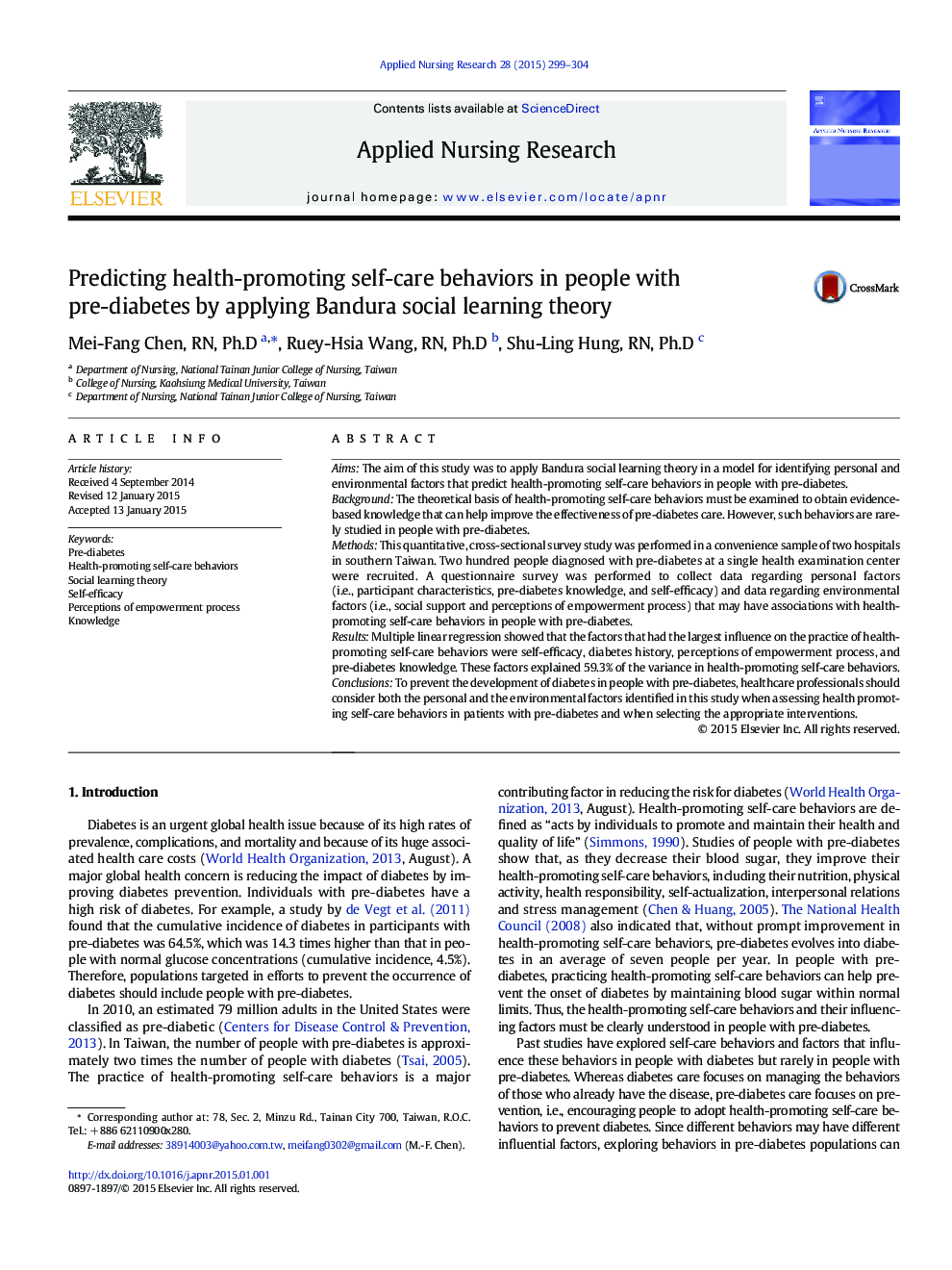| Article ID | Journal | Published Year | Pages | File Type |
|---|---|---|---|---|
| 2644496 | Applied Nursing Research | 2015 | 6 Pages |
AimsThe aim of this study was to apply Bandura social learning theory in a model for identifying personal and environmental factors that predict health-promoting self-care behaviors in people with pre-diabetes.BackgroundThe theoretical basis of health-promoting self-care behaviors must be examined to obtain evidence-based knowledge that can help improve the effectiveness of pre-diabetes care. However, such behaviors are rarely studied in people with pre-diabetes.MethodsThis quantitative, cross-sectional survey study was performed in a convenience sample of two hospitals in southern Taiwan. Two hundred people diagnosed with pre-diabetes at a single health examination center were recruited. A questionnaire survey was performed to collect data regarding personal factors (i.e., participant characteristics, pre-diabetes knowledge, and self-efficacy) and data regarding environmental factors (i.e., social support and perceptions of empowerment process) that may have associations with health-promoting self-care behaviors in people with pre-diabetes.ResultsMultiple linear regression showed that the factors that had the largest influence on the practice of health-promoting self-care behaviors were self-efficacy, diabetes history, perceptions of empowerment process, and pre-diabetes knowledge. These factors explained 59.3% of the variance in health-promoting self-care behaviors.ConclusionsTo prevent the development of diabetes in people with pre-diabetes, healthcare professionals should consider both the personal and the environmental factors identified in this study when assessing health promoting self-care behaviors in patients with pre-diabetes and when selecting the appropriate interventions.
